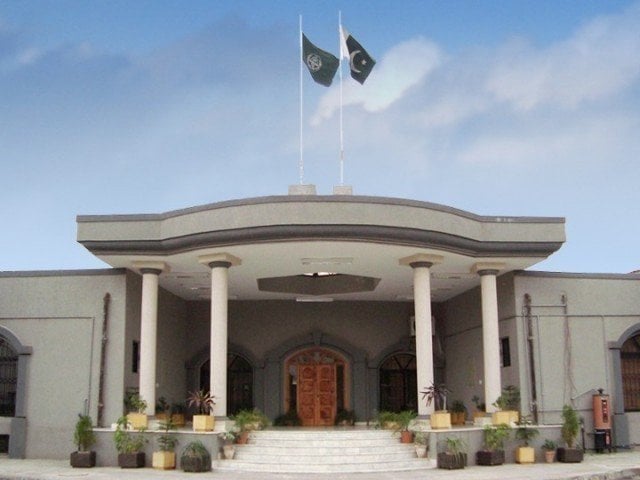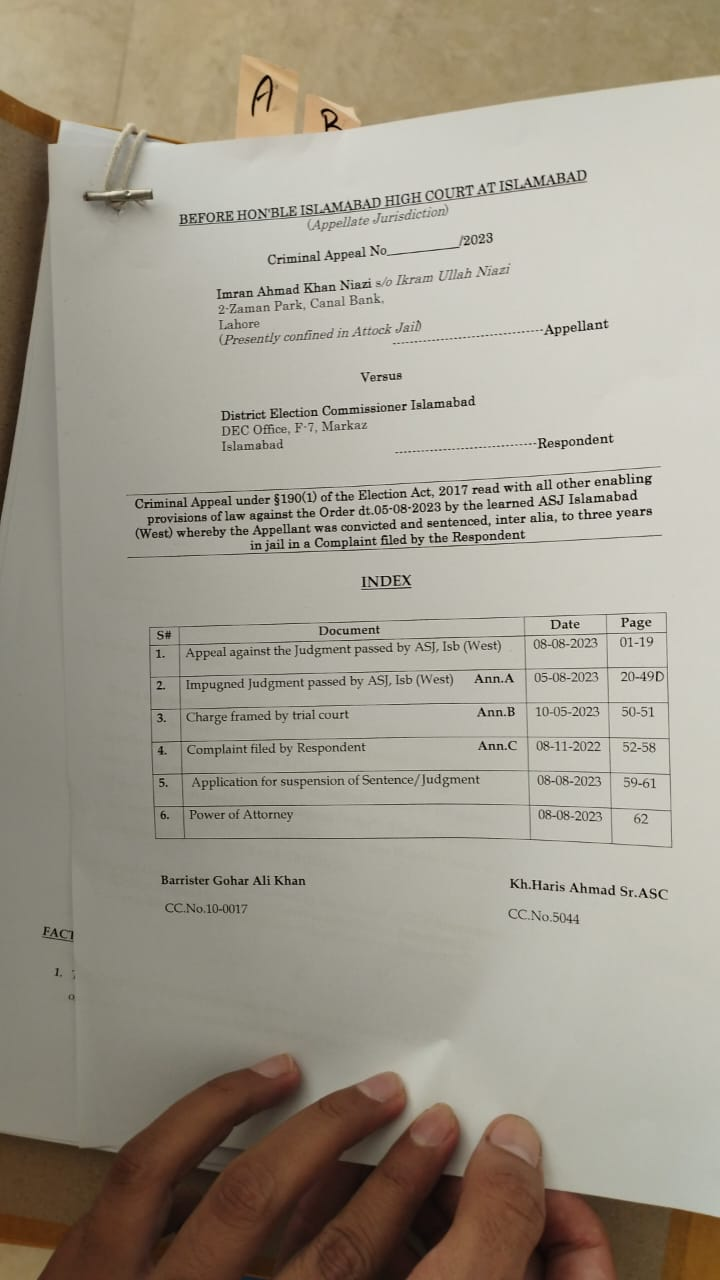
ISLAMABAD: A petition challenging a trial court’s verdict in the Toshakhana (gift repository) case against Pakistan Tehreek-e-Insaf (PTI) chief was filed in the Islamabad High Court (IHC) on Tuesday.
The application was filed by the former premier’s lawyers Khawaja Haris and Barrister Gohar Ali Khan. “The decision of the trial court in the Toshakhana case is against the law,” stated the plea seeking for the verdict to be annulled.
The petitioner’s counsels have requested the high court to issue an order for the release of the PTI chief by suspending the sentence pending the decision on the central appeal.
Notably, deposed prime minister Imran Khan was arrested and sent to the famous Attock jail on Saturday hours after a trial court in Islamabad sentenced him to three years in prison while imposing on him a fine of Rs100,000 for making false declarations about his assets to the polls supervisory body, the Election Commission of Pakistan (ECP).
Additional Sessions Judge Humayun Dilawar also disqualified the PTI chief for five years, apparently ending his prospects for taking part in the elections slated for November this year, provided that superior courts do not come to his rescue this time.
“This court finds it more than convincing that the complainant [ECP] has provided confidence-inspiring, well-knitted and corroborated evidence and so the charge against the accused has successfully been proven,” the judge said in his 30-page verdict issued at the conclusion of a rather speedy trial initiated on a criminal complaint of the ECP.
The trial court said while filing Form-B for the financial year 2018-2019, Imran Khan had declared “four goats” as his assets but omitted to disclose the purchase of precious gifts from the state’s gift repository—Toshakhana—as well as their sale to different people.
Every lawmaker is supposed to submit Form-B to the ECP on a yearly basis. This form is a statement of a legislator’s assets and liabilities including moveable and immovable properties in and outside Pakistan.
According to the verdict, Imran committed the offence of “corrupt practices” by making and publishing false declarations in respect of assets he acquired by way of gifts from the Toshakhana during the years 2018-2019, 2019-2020 and 2020-21.
“He has been found guilty of corrupt practices by hiding the benefits he accrued from the national exchequer willfully and intentionally. He cheated while providing information about the gifts he obtained from Toshakhana which later proved to be false and inaccurate.
His dishonesty has been established beyond doubt,” the order said.
Interestingly, the trial court issued its verdict a day after the IHC remanded the matter of maintainability of the ECP’s complaint back to the trial court for “decision afresh.”
“The court [IHC] was informed that the matter is pending for final arguments tomorrow [August 4], the petitioner [Imran] shall ensure addressing positively on the issue when the matter is fixed [listed] by the court for final argument,” the IHC had noted in its written order.
On the other hand, legal minds in Pakistan have expressed serious reservations over the trial court’s handling of the Toshakhana case, specifically pointing out the blatant disregard for due process and the erosion of democracy through such decisions.
While legal minds withheld comments on the specific facts leading to former premier Imran Khan’s conviction, their concerns focused on the procedural flaws in the court’s proceedings and its serious implications.
They criticised the court for what they viewed “as a hasty and compromised decision” and argued that the ruling echoed previous allegations made by Imran’s lawyers regarding the rushed proceedings of the IHC.



































































































